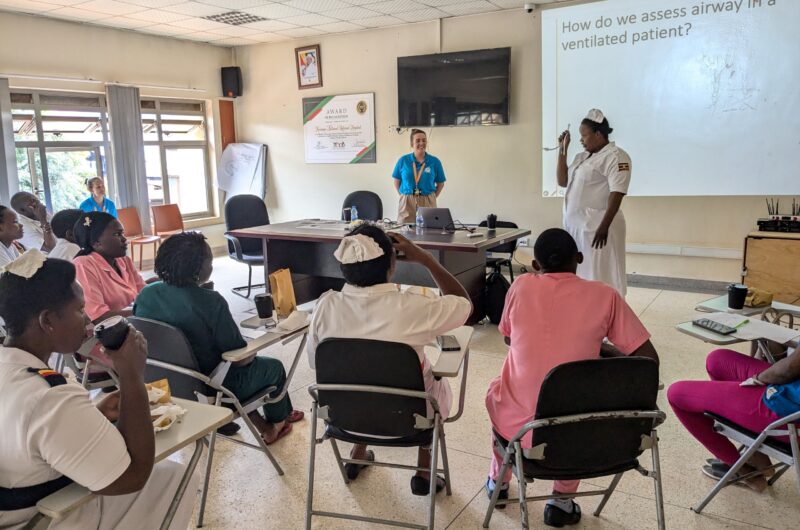Bethany Andrews is a critical care nurse at Addenbrooke’s Hospital. She spent a week in Kampala delivering training with Ugandan faculty on the management of deteriorating patients as part of the SCALE Critical Care project. Here she explains more about the experience and why it happened at just the right time.
“I love working in critical care and am passionate about working alongside and learning from others. I truly believe we are stronger as a team, and all have something to learn from each other, so when the opportunity to visit Kampala came up, I was very keen to take part. I was excited to learn how the Ugandan nurses work on a day-to-day basis, learn different and adaptive methods of working, and help teach transferrable skills that can be implemented in practice.
Global health impacts on a huge variety of factors. It affects national and international healthcare, our economies, and even day-to-day life. By taking part in this experience, we are contributing to achieving equity in health care.
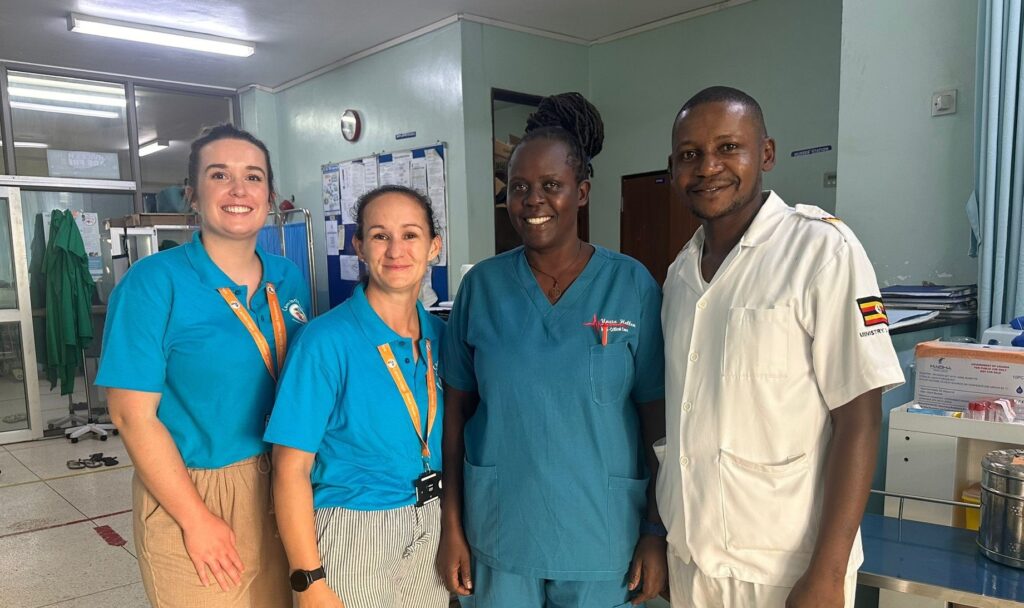
The SCALE project aims to enhance the skills of critical care healthcare professionals (both Ugandan and UK) through peer-to-peer learning opportunities, simulations and discussions. Ugandan staff can participate in the development and learning opportunities within their own clinical environment, which means more staff can participate and increases the educational outreach. It also provides an opportunity for critical care nurses like me who don’t have a role in practice development to take part, which I’m exceptionally grateful for.
What we did
We provided classroom teaching and simulation activities to nursing staff at both Kawempe National Referral Hospital (KNRH) and Mulago National Referral Hospital (MNRH).
In Kawempe, classroom and simulation teaching focussed on A-E assessments (theory and practical), Sepsis, ECG rhythm recognition, ALS algorithm and Adult/Infant life support.
In Mulago, teaching focussed again on A-E assessments (theory and practical), ECG rhythm recognition, ICU delirium, ICP management and management of a dislodged tracheostomy.
However, another crucial part of our visit was being a friendly face, answering questions, and learning about a new culture. Even though our healthcare practices may differ, behind it all is a nursing team dedicated to providing the best care possible to their patients. It is incredibly important to build sustainable and trusting relationships where we can all learn from each other, and I believe the visits are a vital part of this.
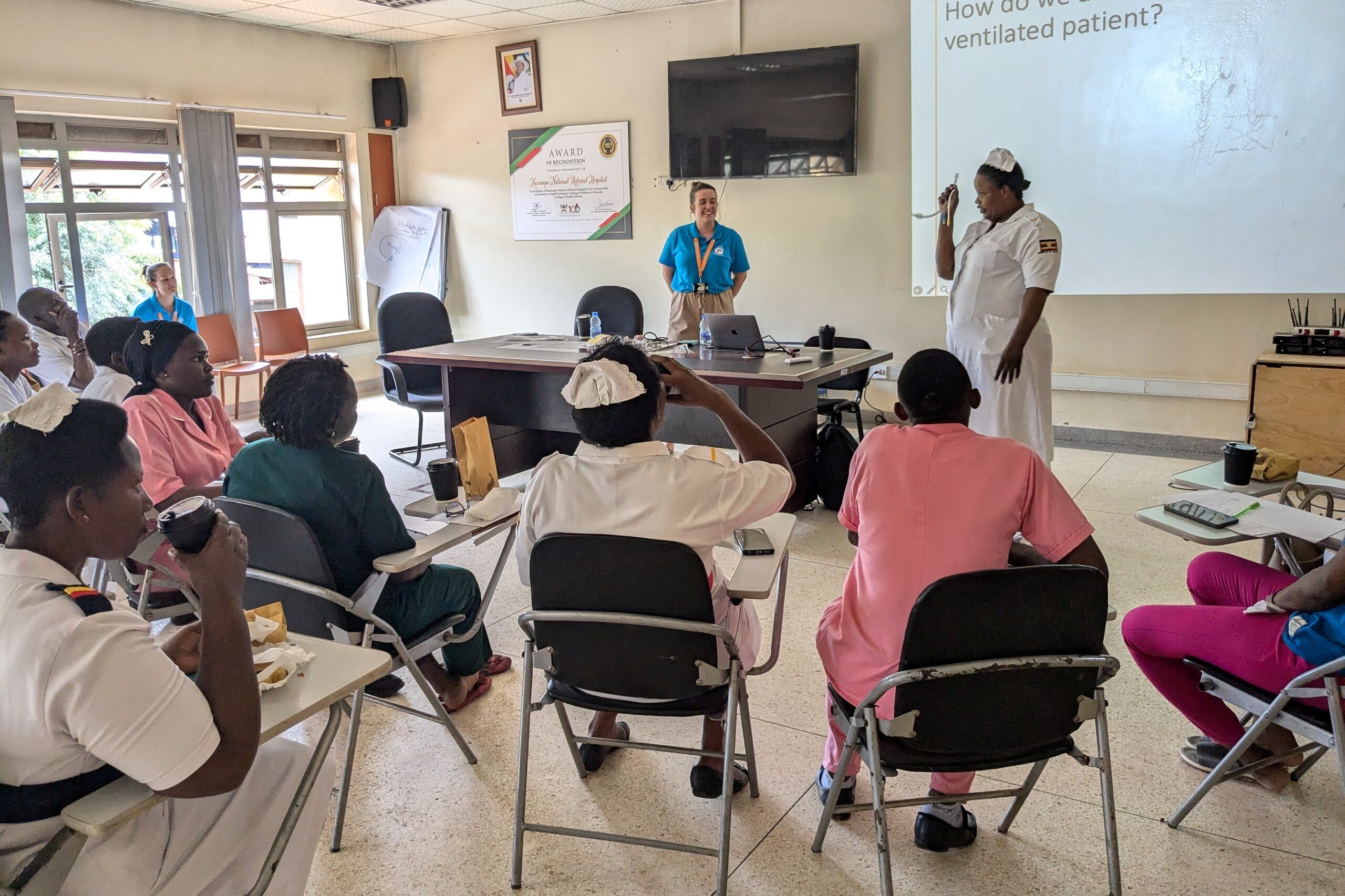
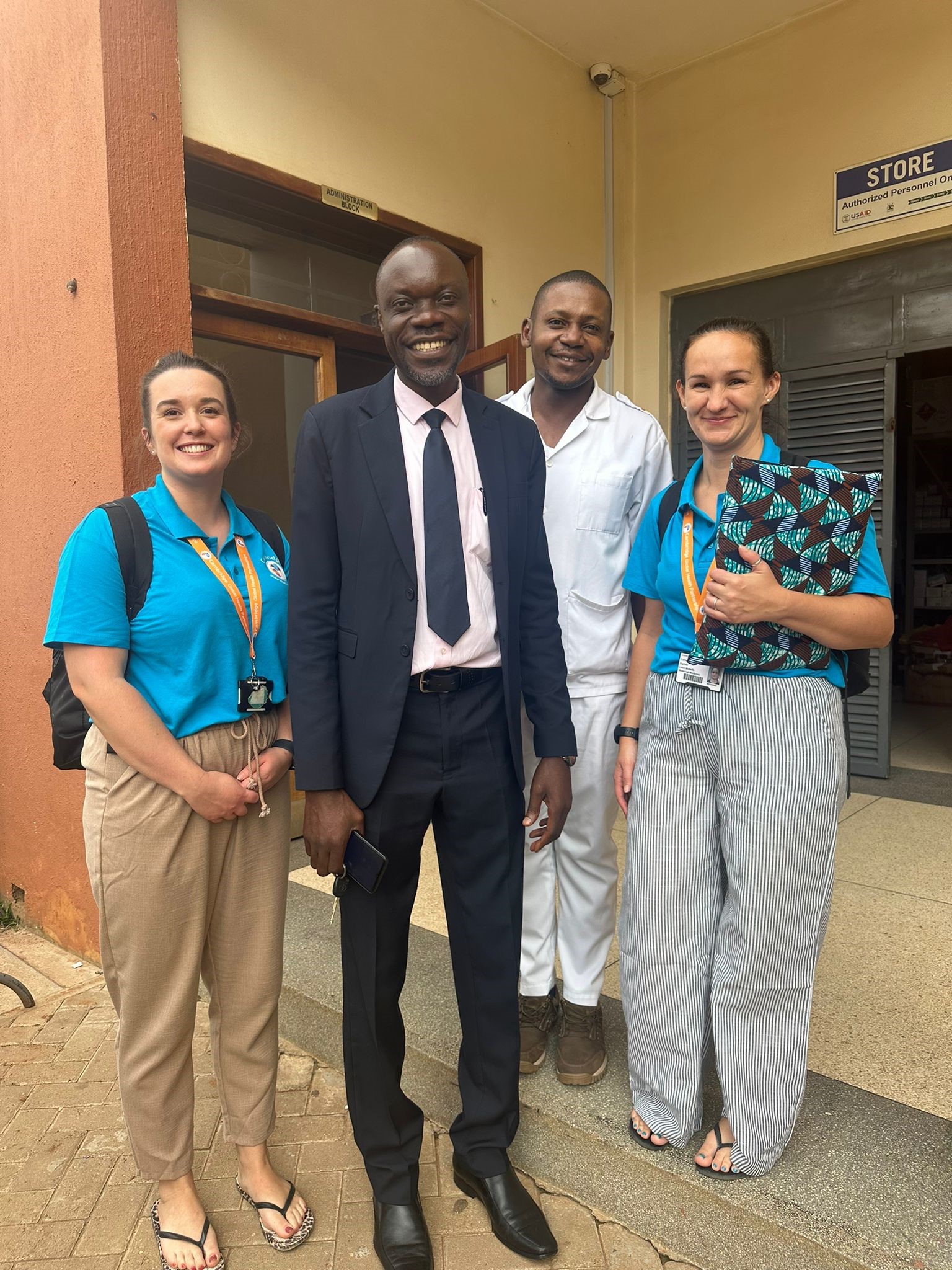
My contribution
Working on the neurological and trauma intensive care unit at Addenbrooke’s Hospital, I was able to bring a practical perspective to Intracranial Pressure (ICP) management and neuro assessments. I regularly care for patients who have a neurological deficit and traumatic brain injuries with raised ICPs, so I was able to explain bedside nursing interventions that can be easily performed to neuro-protect them. Alongside this, I was able to learn how Mulago National Referral Centre manages and treats ICP patients and those with a neurological deficit.
As well as sharing specialised practical knowledge for neuro and trauma patients, I was able to demonstrate skills I use every day, such as A to E assessments, ILS skills and basic nursing care.
On my second day at Kawempe Hospital, as we were discussing A-E assessments, before we knew it, Catherine and I were in a big circle singing and clapping to an improvised song about patient assessments! This was initiated by one of the nurses in the group and everyone was quickly smiling, laughing and singing about airway, breathing and circulation!
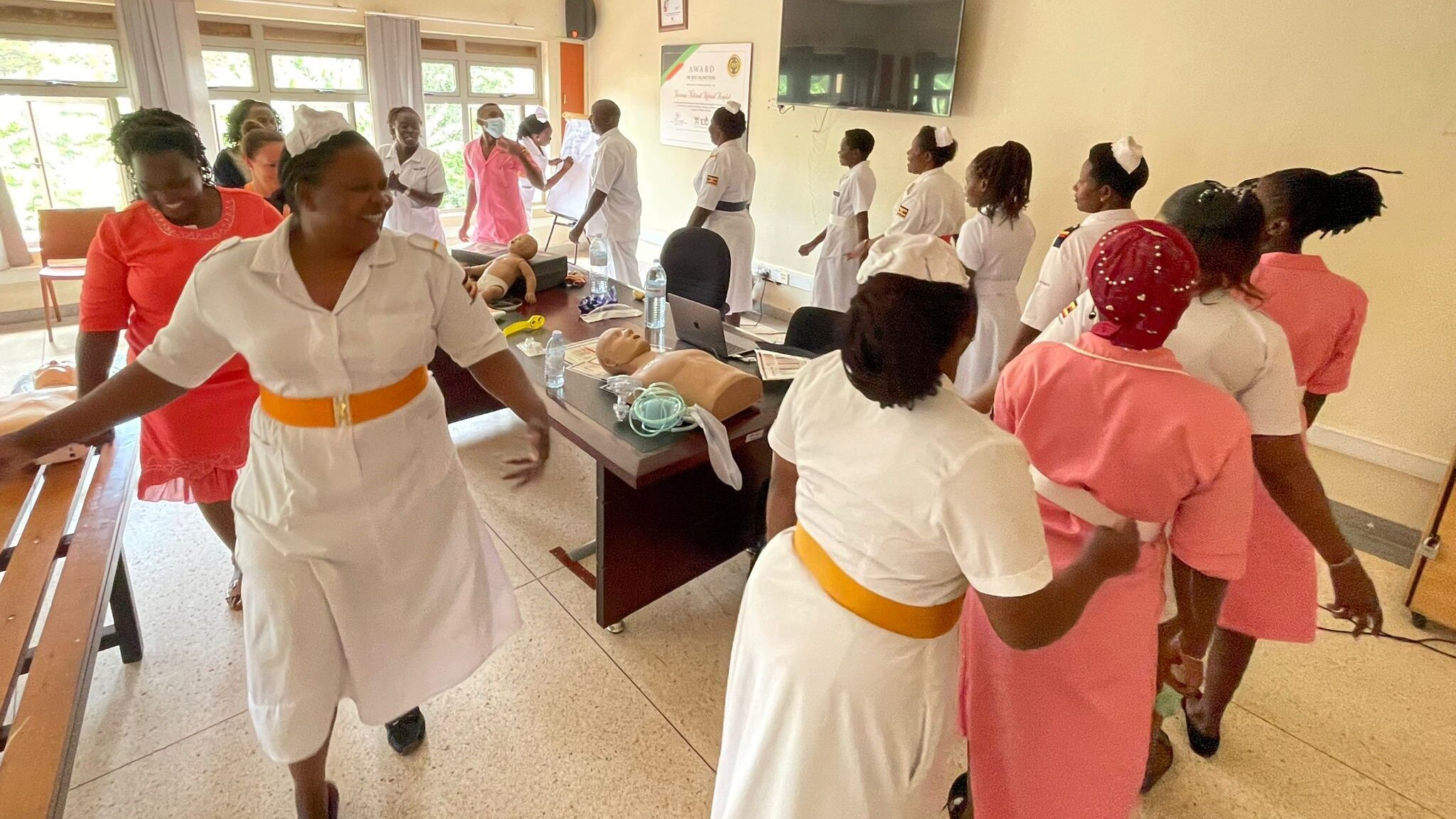
Overcoming challenges
It was challenging not fully understanding how nursing practices work in Mulago/Kawempe critical care units until I was there. I think that being used to nursing in the UK, it is difficult to truly appreciate the differences until you are there.
Once I was there, I was able to quickly gauge where I was able to offer help and information, and tailor my approach to be more appropriate for the setting and care/interventions they can provide. For example, blood gases are not consistently available to staff so there were limitations to discussing their assessment and application.
The most rewarding parts of the trip were the second days at Kawempe and Mulago Hospitals, when we consolidated knowledge from the previous day either through a quiz and/or scenario-based work. During this time, I was able to see first-hand staff discussing and applying the information, which made me feel exceptionally proud to have a positive impact in such a short space of time. Our colleagues were able to take the knowledge and apply it to their own practice.
Personal and professional development
I can honestly say that this experience has changed me for the better. I am exceptionally grateful for the healthcare service we have access to in the UK, which is free at the point of care. I have gained a whole new perspective on the day-to-day lives of nursing staff in Uganda and one I would not be able to fully appreciate without going.
I am truly grateful for this opportunity and the experiences I have gained. I would like to go back to Kawempe and Mulago Hospitals to continue supporting their learning and development, while also learning from them to further improve the care we provide to our patients.
Professionally, my perspective has also changed significantly. I have a whole new appreciation for the level of care we can provide at Addenbrooke’s Hospital, including the teaching we provide and receive, the equipment we use, and our constant striving to be better.
I also gained a huge appreciation for the overseas nurses who come to work with us at Addenbrooke’s. Seeing how differently critical care is practised in another country, I have such admiration for their adaptability to learn and practice in the UK.
A well-timed visit
A few days before going to Uganda I found out I was successful in getting a band 6 charge nurse post in critical care. Coming back from Uganda and starting my new role with this wealth of experience, knowledge and appreciation has further consolidated my desire to support my team so we can learn and grow together. It has empowered me to share the knowledge and perspective I gained on my trip with my colleagues and will help me become a more effective role model within my team.
I feel refreshed and ready to come back to work armed with my new perspective on global healthcare and different cultures. This trip has given me the opportunity to develop my leadership and teaching skills which will only benefit me in the long term, as these are transferable skills I can apply in my every day working environment.
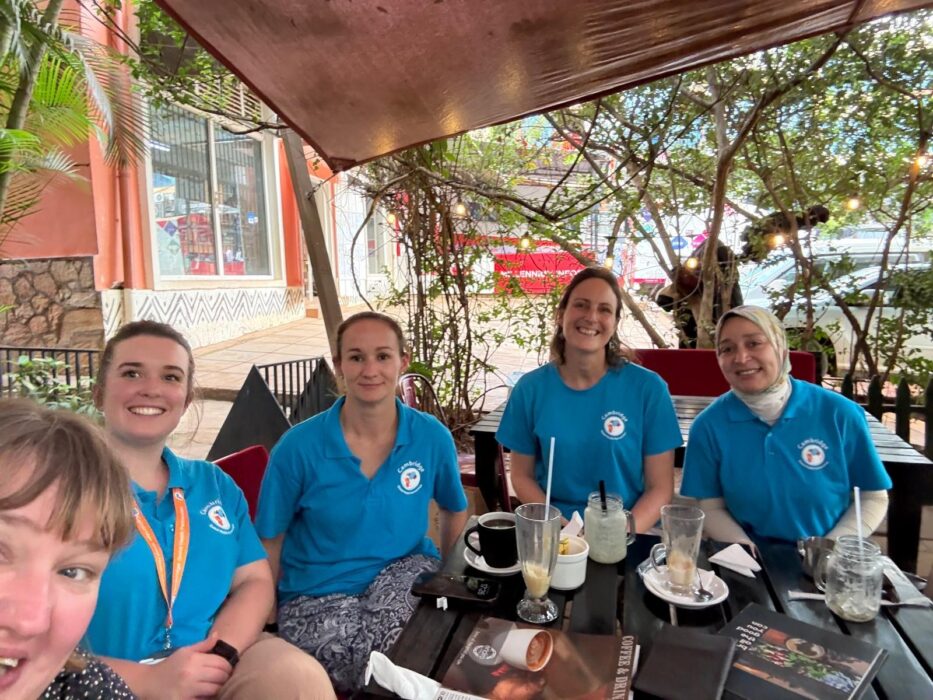
Ongoing impact
The nursing skills that we covered will help the staff effectively and strategically assess the patients in their care, identify a deteriorating patient, and empower them to escalate and get help. These skills are transferable to all areas of nursing and can be used every day and easily taught to other colleagues. The implementation of all of these actions will improve the care the patients receive and potentially help to identify deterioration more quickly.
Twice-yearly visits to Uganda help to consolidate this knowledge and allow for professional development and increased patient safety. The visits also help to build long-lasting, sustainable relationships between the UK and Uganda. We are incredibly lucky to receive the high level of education and teaching here and by sharing and learning from each other we can help to positively impact care in Uganda.
The project also makes us look at the care we provide to our patients in the UK and how we can improve. It allows us to have a new perspective on why we provide care the way we do and review how we use our resources to ensure we are utilising cost-effective methods of providing care/interventions.
Looking ahead
I would absolutely recommend global health work to my peers. I think it is an incredible opportunity to learn about healthcare in another country and to learn and appreciate the different ways in which nursing care is provided. The experience has only positively impacted me personally and professionally, how I work within my team and the care I provide to my patients. I will definitely be applying for the next visit to Uganda!”
Find out more about the SCALE Critical Care project, or contact us at info@cghp.org.uk
Return to blogs

